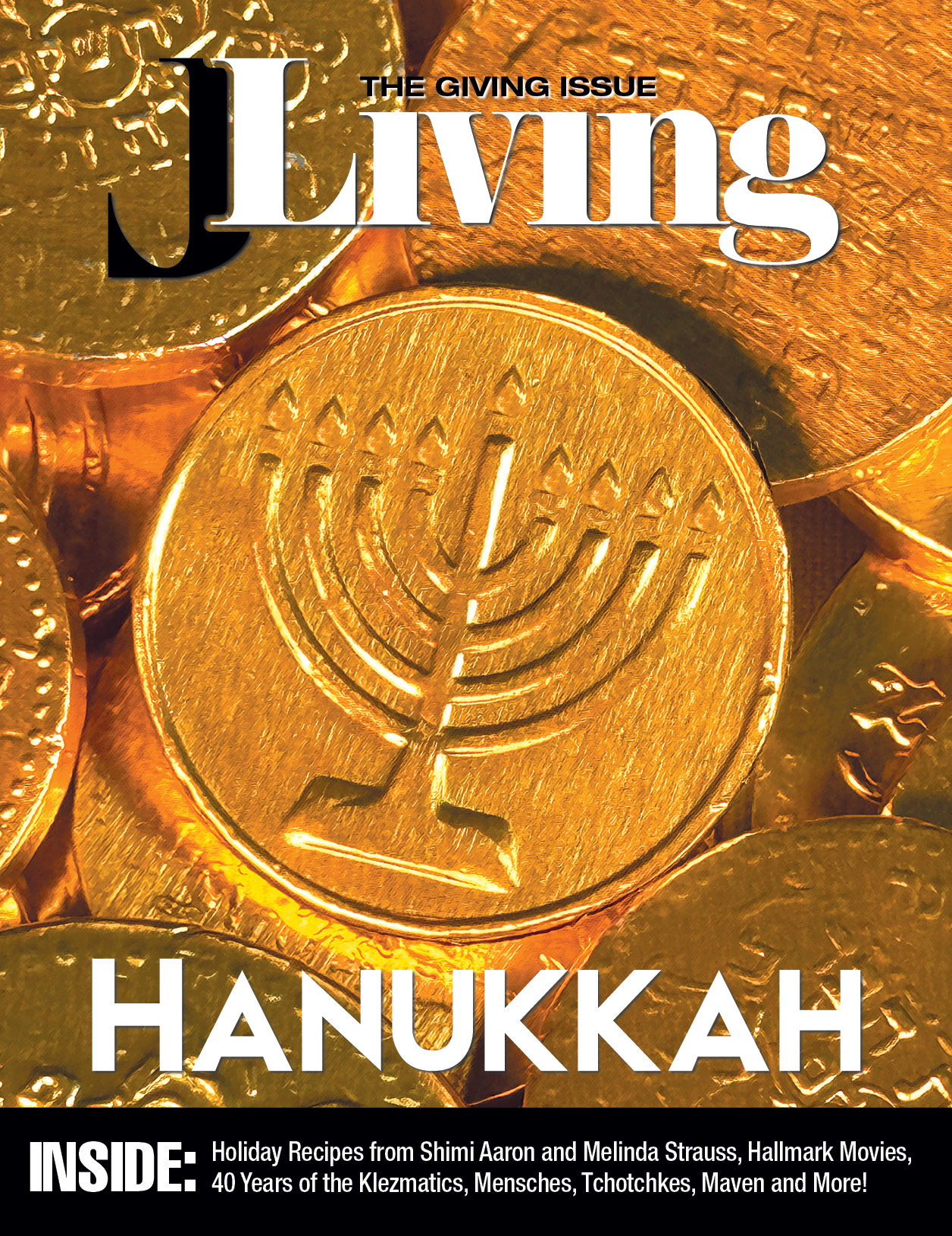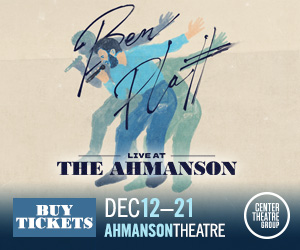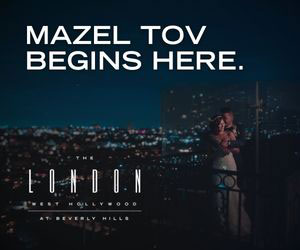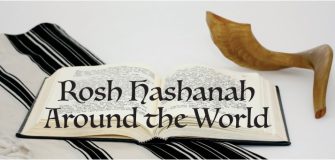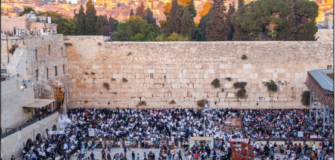The Frisco Kid – Cowboy or Jew Boy?
Jews were just as important to the founding of the Old West as any other immigrant community. At least that’s what I came away with after watching the 1979 cult classic “The Frisco Kid”, starring Gene Wilder.
Wilder plays Avram Belinski, the biggest shlemiel of a mid1800s Polish yeshiva who is sent to America to become the rabbi of San Francisco’s Jewish community. Upon arriving in New York, his orthodox appearance, traditional practices and overall naïveté stand out like a sore thumb.
He is robbed of all his belongings, including the precious Torah he is supposed to deliver to the San Francisco congregation. In a series of high jinks and vignettes, Belinski joins forces with train robber Tommy Lillard, played by up-and-coming movie star Harrison Ford. As they travel by horse across the United States, Belinski’s lifestyle is put to the test: He must choose between Halacha and the traditions of his ancestors or shedding his pious ways for a more practical path of assimilation.
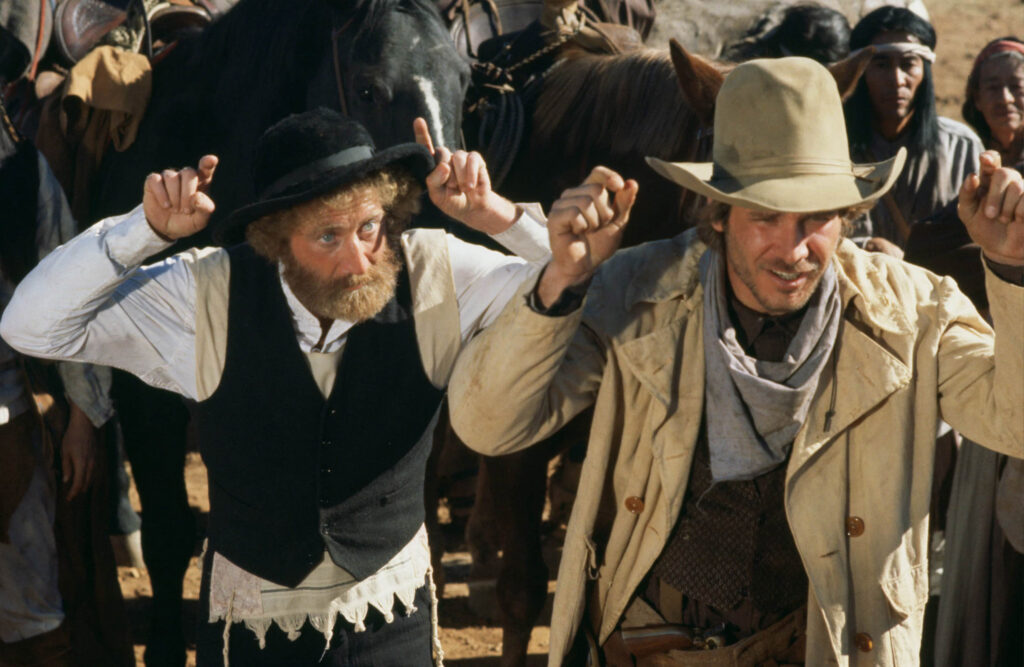
One memorable scene includes Belinski and Lillard running from a lynch mob. Belinski refuses to use a horse to evade the posse until the last possible second, when the sun goes down behind a mountain, technically marking the end of the Sabbath.
At first viewing, I thought it was a funny idea for a Jew to be placed in a traditional western film. However, in speaking with the screenwriter Michael Elias at the iconic L.A. diner John O’Groats, I learned that Jews were a significant ethnic minority in the American West.
In pitching ideas for films, Elias and his co-writer Frank Shaw realized they hadn’t seen any Jews in westerns. They soon subscribed to the “Western States Jewish Historical Quarterly” (WSJHQ) and were inspired by many stories from this forgotten history. Founded in 1968, the WSJHQ is “an organization dedicated to the discovery, collection and dissemination of items and information pertaining to the Jewish experience in the American West.”
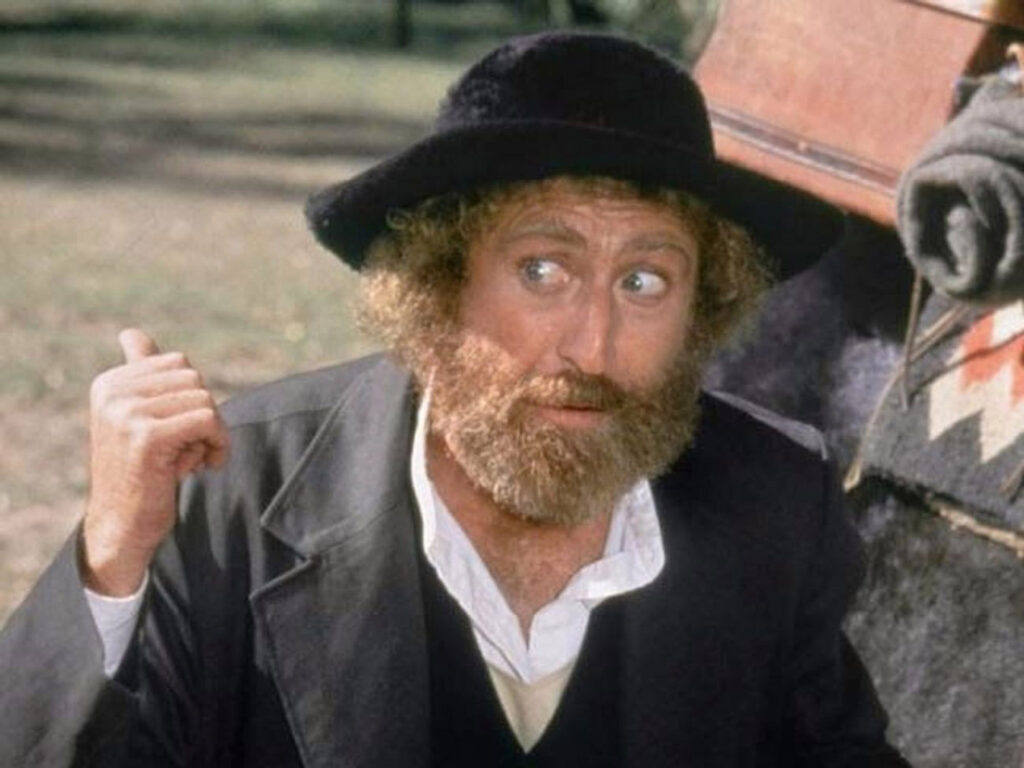
Professor Jonathan L. Friedman, a scholar of Jewish music and history, points out in his article, “The Frisco Kid Revisited,” that “Elias’ goals were essentially the same as (WSJHQ): telling a story of the Jewish pioneer experience, engendering pride in being Jewish, and raising awareness of the Jews’ role in developing the country.”
In early 20th century vaudeville acts, the bumbling Jewish cowboy became a stock character used as a device for humor and “represented limits to becoming fully American,” according to Friedman. Jews not only performed in these minstrel shows — sometimes known as Jewface — they were also the primary paying audiences.
Friedman believes that the reason “The Frisco Kid” was produced in the ’70s may lie in a number of factors, including the rise of identity politics and growing Jewish pride. Up until the ’70s and still to the present day, Jews have often appeared on screen as urban, upper class and secular Ashkenazim.
While “The Frisco Kid” sticks out in the canon of Hollywood representation of Jews, Elias believes that the original script would’ve been far more impactful than the zany Wilder version. Critics such as Shari Rabin, author of Jews on the Frontier, accused the film of playing too heavily into “gimmicky ethnic stereotypes,” rather than pushing against, as Elias and Shaw sought to accomplish in their original vision.
The initial screenplay for “The Frisco Kid” was titled “No-Knife,” an allusion to the new name Belinski receives at the hands of a Native American tribe. It was slated to be a more grounded — even dramatic — film, along with a more faithful depiction of the Jewish experience in the Old West.
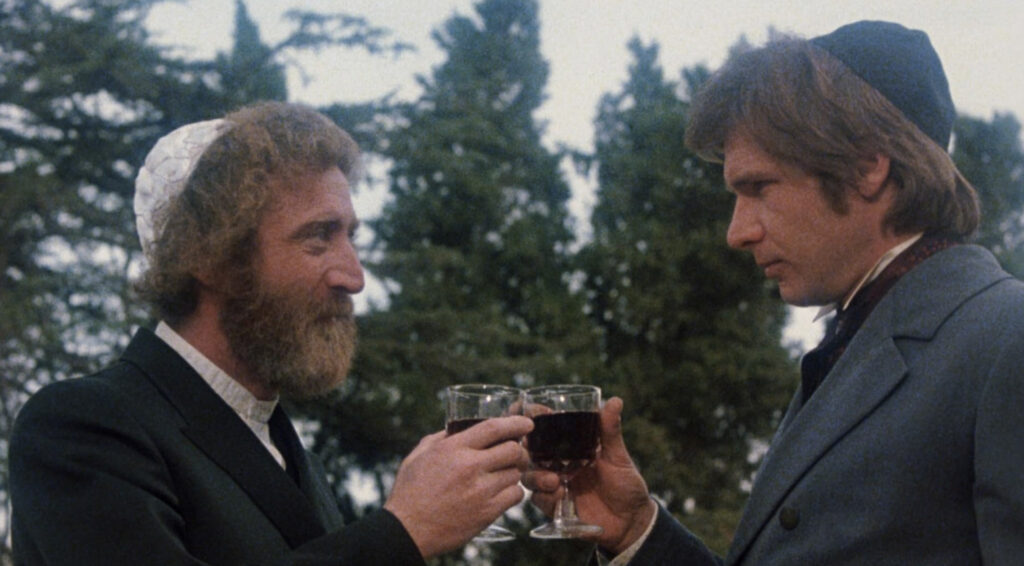
This production was to be directed by the legendary Mike Nichols, starring 1970s screen titans Dustin Hoffman and Jack Nicholson. But after the option agreement expired, director Robert Aldrich and kooky comedy star Gene Wilder came aboard the project. When Wilder attached himself, Elias and Shaw soon realized they would be losing control of their story.
“Gene Wilder had tantrums,” Elias said. “He went to Paris, and he rewrote the whole thing. He put back all the arguments that he had lost.”
In the original script, Belinski escapes the Cossack pogroms of Tsarist Russia and is haunted by nightmares throughout his American travels. This abandonment of character and dramatic depth for a palatable, audience-friendly comedy is among Elias’ major gripes with the finished product.
“In the movie, (Wilder’s) suitability for the San Francisco post is never made clear,” Professor Friedman explains, “and we are left wondering why any synagogue would hire this nincompoop.”
Elias’ contention is that Wilder’s persona and schtick as a hysterical guy “who ends up in screaming fits” made the movie all about Wilder and not the character. From Elias’ perspective, “The Frisco Kid” is about a young Eastern European shtetl rabbi who becomes Americanized along the way “so that he ends up in San Francisco as an American rabbi” ready to lead the Jewish congregation. But Wilder, “as movie stars are prone to do,” made it about him.
The 2022 PBS documentary, “Jews of the Wild West,” claims that by the early 20th century, there were approximately 100,000 Jews who had migrated to the west. Jews escaped the oppression of their communities in Europe for opportunity in America.
There are a number of interesting Jewish stories from the Wild West, but for Elias and Shaw, none more captivating than the life of Solomon Bibo. Born in Germany, Bibo eventually found his way to Santa Fe — then part of the New Mexico Territory — and married a woman from the Acoma tribe.
His ties became so strong, he was elected chief in 1885 and even “championed them in property disputes with the Federal government,” according to AISH. “After serving as chief, Solomon Bibo relocated his family to San Francisco in order to live in a more Jewish environment and give his children greater exposure to Jewish life and education.”
The real-life story of Bibo presented a major inspiration in the original iteration of the character of Belinski, who enjoys the camaraderie and charity of the Native tribe, thus beginning to shed his strict customs and move toward his eventual arc as an assimilated American rabbi. However, what ended up in the Wilder/Aldrich version is a slapstick stereotype in which Belinski and Lillard are nearly roasted like pigs over a fire by a group of Indians.
For Professor Friedman, this was the trade-off that broke the camel’s back. He writes, “Nixing this pivotal encounter in favor of the caricatures in the film was unfortunate. Not only did it further obscure the intended theme of a dogmatic shtetl rabbi adapting to America, but it also eliminated the role of ‘authentic Americans’ — realistically portrayed Indigenous people and a runaway slave — in the process.”
While the film may not be all that Elias or scholars hope for in a story about Jewish immigration and the Old West, it should serve as a jumping-off point to a deeper education about a little-known topic — shedding light on the history of American Jews and the founding of the Old West. It was not only unique in its subject matter for the time period, but there have yet to be many Jewish portrayals in the Old West to the present day, adding to its massive success and cult status among cinephiles.
“The Frisco Kid” remains a celebrated watershed for Jewish cinema and Gene Wilder’s illustrious career. Online entertainment publication Collider ranked it No. 9 on Wilder’s greatest performances, and in 2014, the British Film Institute placed it among 10 great Jewish films, alongside Norman Jewison’s Fiddler on the Roof (1971) and Claude Lanzmann’s epic nine-hour documentary, Shoah (1985).
Microwave up a bag of popcorn, pull out a box of Milk Duds, and enjoy one of the greatest comedy westerns.
JLiving and The Los Angeles Jewish Film Festival will be hosting a Screening of The Frisco Kid with special guest this October. For more information go to lajfilmfest.org

